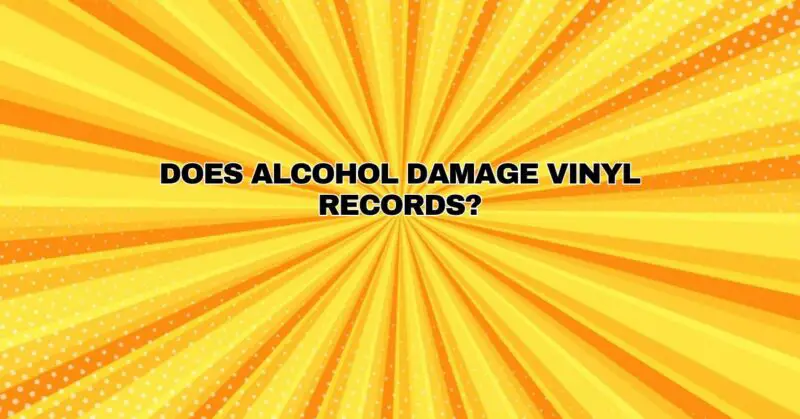Vinyl records have seen a resurgence in popularity in recent years, drawing audiophiles, collectors, and music enthusiasts back to the warm, analog sound of vinyl. Along with this resurgence, questions have arisen about how to care for vinyl records properly. One common concern is whether alcohol can damage vinyl records. In this article, we will explore the relationship between alcohol and vinyl records, addressing myths, facts, and best practices for maintaining your vinyl collection.
The Composition of Vinyl Records
To understand how alcohol might interact with vinyl records, it’s essential to know what vinyl records are made of. Vinyl records are primarily composed of polyvinyl chloride (PVC), a type of plastic. PVC is sturdy and can withstand repeated plays, but it can be susceptible to damage if exposed to harsh chemicals or improper handling.
Myths and Misconceptions
- Myth: Alcohol Cleans Vinyl Records Effectively: Some people believe that alcohol, particularly isopropyl alcohol or ethanol, is an effective cleaner for vinyl records. While alcohol can clean the surface of the record, it can also have unintended consequences.
- Myth: Alcohol Removes Stubborn Stains and Grime: Another misconception is that alcohol can remove stubborn stains or grime from vinyl records without causing harm. While it may remove some surface contaminants, it can also strip away protective coatings and damage the vinyl itself.
The Reality: Alcohol and Vinyl Records
While alcohol can be used as a cleaning agent for many surfaces, including some types of plastic, its use on vinyl records is a matter of debate among collectors and experts. Here are some key points to consider:
- Record Cleaning Solutions: Dedicated record cleaning solutions are available for cleaning vinyl records. These solutions are specifically formulated to be gentle on vinyl and effectively remove dust, dirt, and grime without causing damage. They are often preferred over alcohol-based solutions.
- Alcohol Can Dry Out Vinyl: Alcohol is a drying agent and can potentially leach moisture from the vinyl record. Over time, this can make the vinyl brittle and more prone to cracks and warping.
- Risk of Residue: Alcohol can leave behind a residue on the record’s surface, which can attract more dust and dirt, ultimately degrading the sound quality and reducing the lifespan of the record.
- Removing Stains with Caution: If you are attempting to remove a stain from a vinyl record, it’s advisable to use specialized stain-removing products designed for vinyl records. These products are less likely to cause damage.
Best Practices for Cleaning Vinyl Records
To ensure the longevity and sound quality of your vinyl records, follow these best practices for cleaning and maintaining them:
- Use a Dedicated Record Cleaning Solution: Invest in a high-quality record cleaning solution specifically designed for vinyl records. These solutions are gentle on the vinyl and do not leave behind harmful residues.
- Handle Records with Care: Always handle vinyl records by their edges to avoid touching the playing surface. Fingerprints and oils can degrade sound quality and introduce noise.
- Use a Clean, Anti-Static Brush: Before each play, use an anti-static brush to remove dust and debris from the record’s surface. This helps maintain sound quality and reduces the risk of damaging the stylus.
- Store Records Properly: Store vinyl records upright in a cool, dry place, away from direct sunlight and extreme temperatures. Use inner and outer sleeves to protect the records from dust and scratches.
- Inspect Records Before Playing: Before playing a record, visually inspect it for visible dirt, dust, or debris. Clean records as needed before placing them on the turntable.
- Avoid Alcohol-Based Solutions: While some collectors may use alcohol-based solutions sparingly, it’s generally safer to avoid them and opt for dedicated record cleaning solutions.
Conclusion
Alcohol, particularly isopropyl alcohol or ethanol, should be used with caution when cleaning vinyl records. While it can clean the surface, it carries risks such as drying out the vinyl, leaving behind residues, and potentially damaging the record over time. To ensure the longevity and optimal sound quality of your vinyl collection, it’s advisable to use dedicated record cleaning solutions and follow proper handling and storage practices. Maintaining a clean and well-preserved collection will allow you to enjoy the warm and nostalgic sound of vinyl for years to come.


